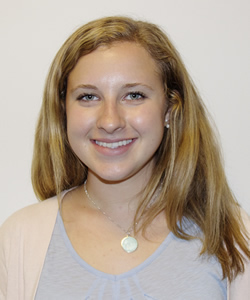Sister Rosemary Connelly, R.S.M., director of Misericordia Heart of Mercy, said about her work, “At Misericordia we look upon each one of our children and adults as a person with individual needs, feelings, aspirations, limitations and gifts. Each one is unique, a gift to us today, a loving a loved person made by God with a purpose in life—no matter how wrapped in mystery that purpose is. We believe, we accept, we love each person and we are a better people because they have touched our lives.” This statement is applicable in a broad way to the Christian ethic of love of neighbor and non-discrimination. It could be talking about interfaith, interracial, or intercultural relations. However, in this context, Sr. Rosemary is speaking to her mission and work with the developmentally disabled at Misericorida.
Engaging difference entails interacting with people from all walks of life. In our work, we usually equate this to interfaith and intercultural relations, but through my visits to Misericordia in Chicago, I have come to connect it to the special needs community and Catholic community as well. As part of a service project I started in May and will continue during the summer while I am at home, I assist the art room at Misericordia, one of the various activities in which the residents participate. Misericordia is located in the city of Chicago and offers a “community of care” for persons with mild to profound developmental disabilities. This includes housing, employment, therapy, health and wellness, and social activities.
By serving society’s most vulnerable citizens, Misericordia also serves the families who want the best for them yet cannot provide it at home. Since I have a brother on the autism spectrum, their mission and work is profoundly personal and important to me. Therefore, it is hard for me to truly articulate my emotions and views on this topic, because there is too much to say and not accurate enough ways to say it. Focusing specifically, then, on Misericorida and my service project there, the complex was founded and is run by Sr. Rosemary and Father Jack Clair, two Roman Catholics, so their mission for the care of the developmentally disabled stems from a religious responsibility, though is not limited to any religion.
Engaging with these adults with diverse skills and needs always leaves me with more perspective when I leave. The beauty in the small encounters in the art room goes back to my ethic of peacebuilding and community building on the ground level. Again, it all connects back to the fact that engagement and encounter makes things less alien and feared. Exclusion and marginalization occurs to those with special needs just as much or more than diverse religious groups because they truly do not have a voice in society. They can be easy to ignore, fear, or push aside in the context of our own lives. Coming from a Christian perspective, we are all made in the image and likeness of God, and that gives us a responsibility to treat all humans with dignity and respect. This same strain of logic applies to interfaith and intercultural relations within Christianity as well.
Communities such as Misericorida are truly needed in the context of community building and engaging difference. Misericordia strongly involves local high school and college students in service, an invaluable outreach aspect that has made involvement with the complex normalized and exciting. As a Doyle Undergraduate Fellow, engaging difference entails all difference, and seeking out that which is alien and unknown in order to ultimately find grace. My encounter with residents at Misercordia has affected me in the same way that attending a Shabbat or any other unfamiliar religious service has, and sharing that experience is important.

